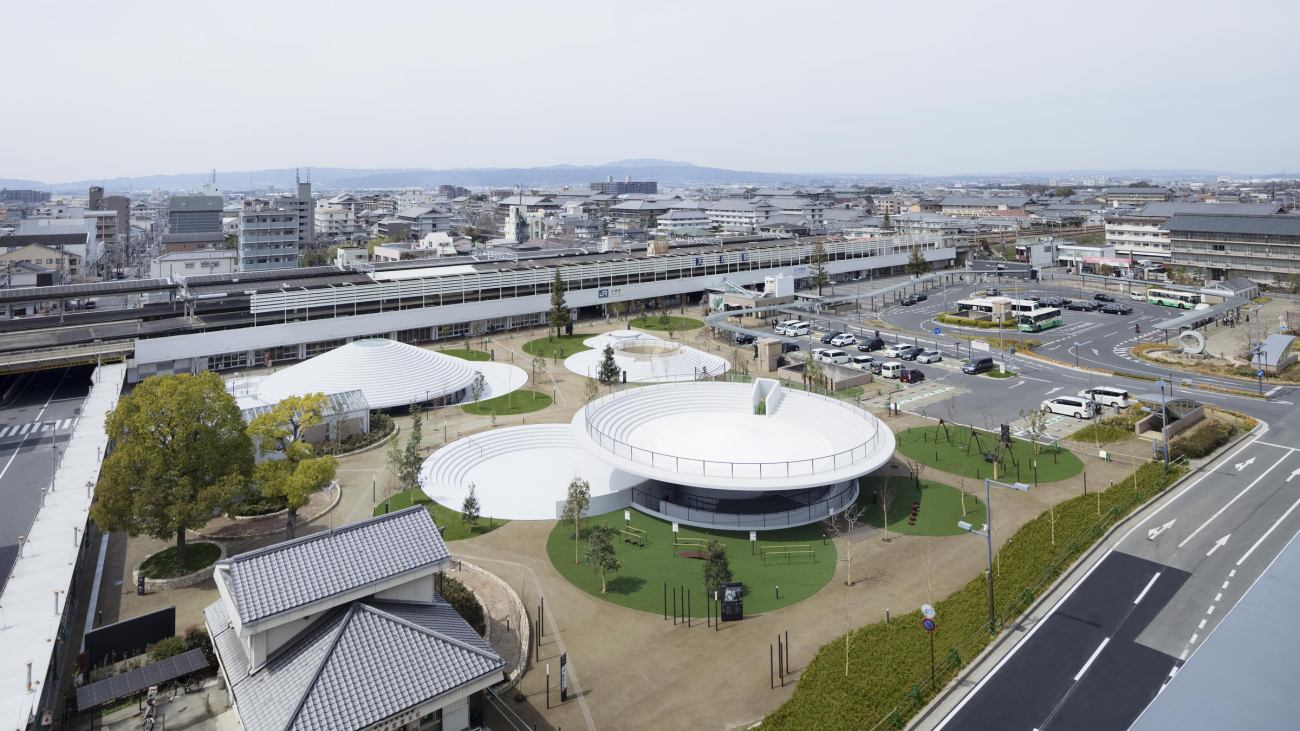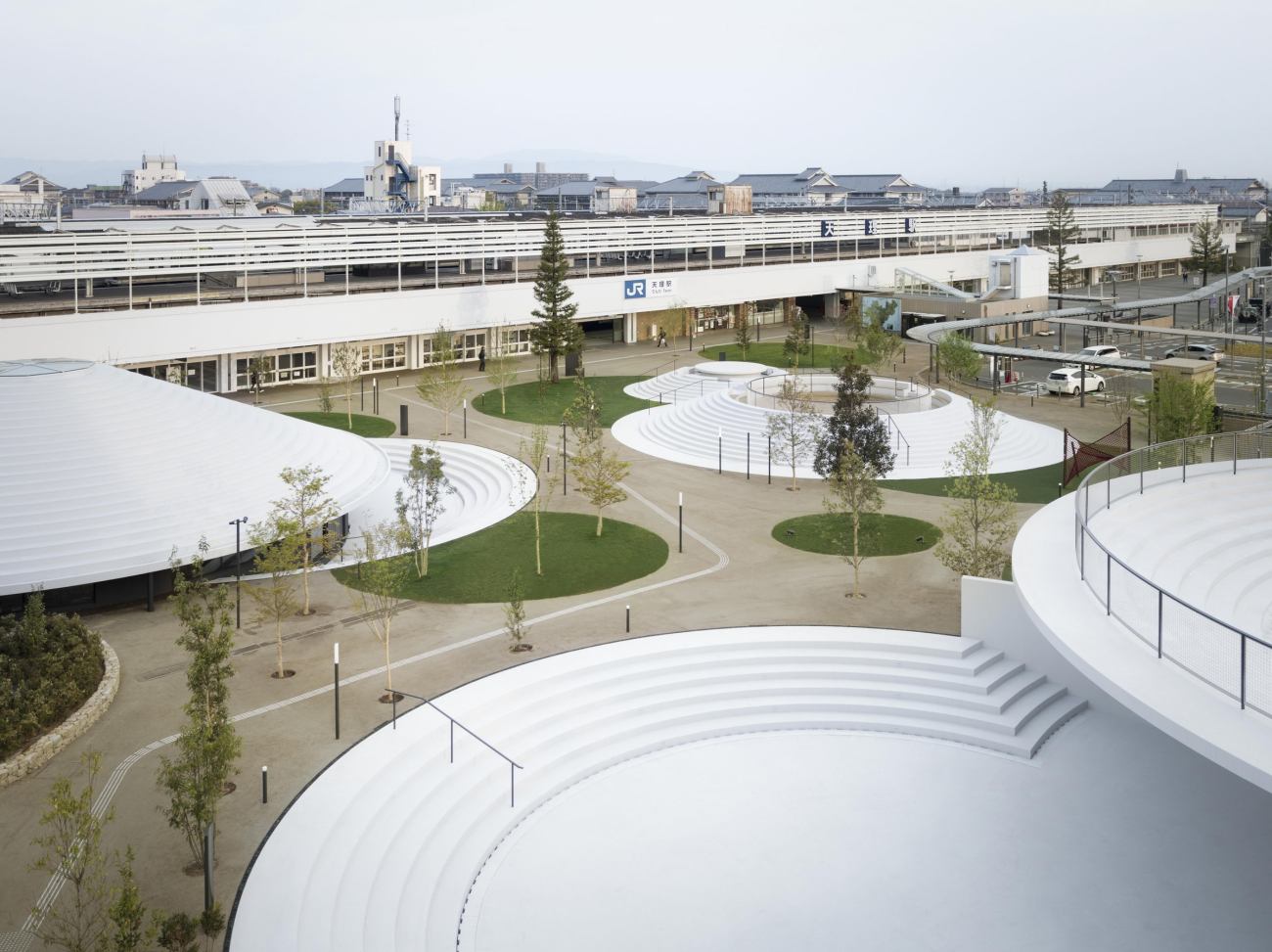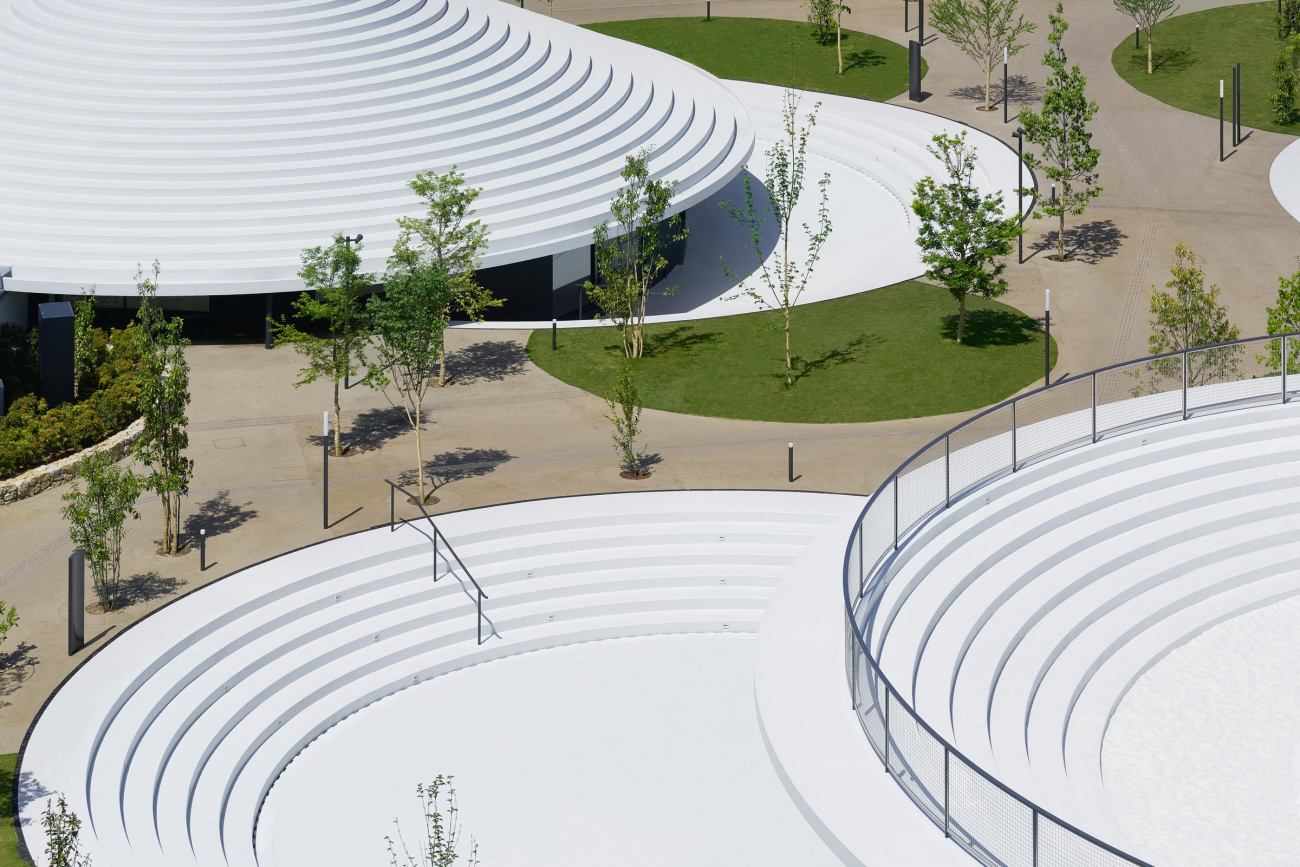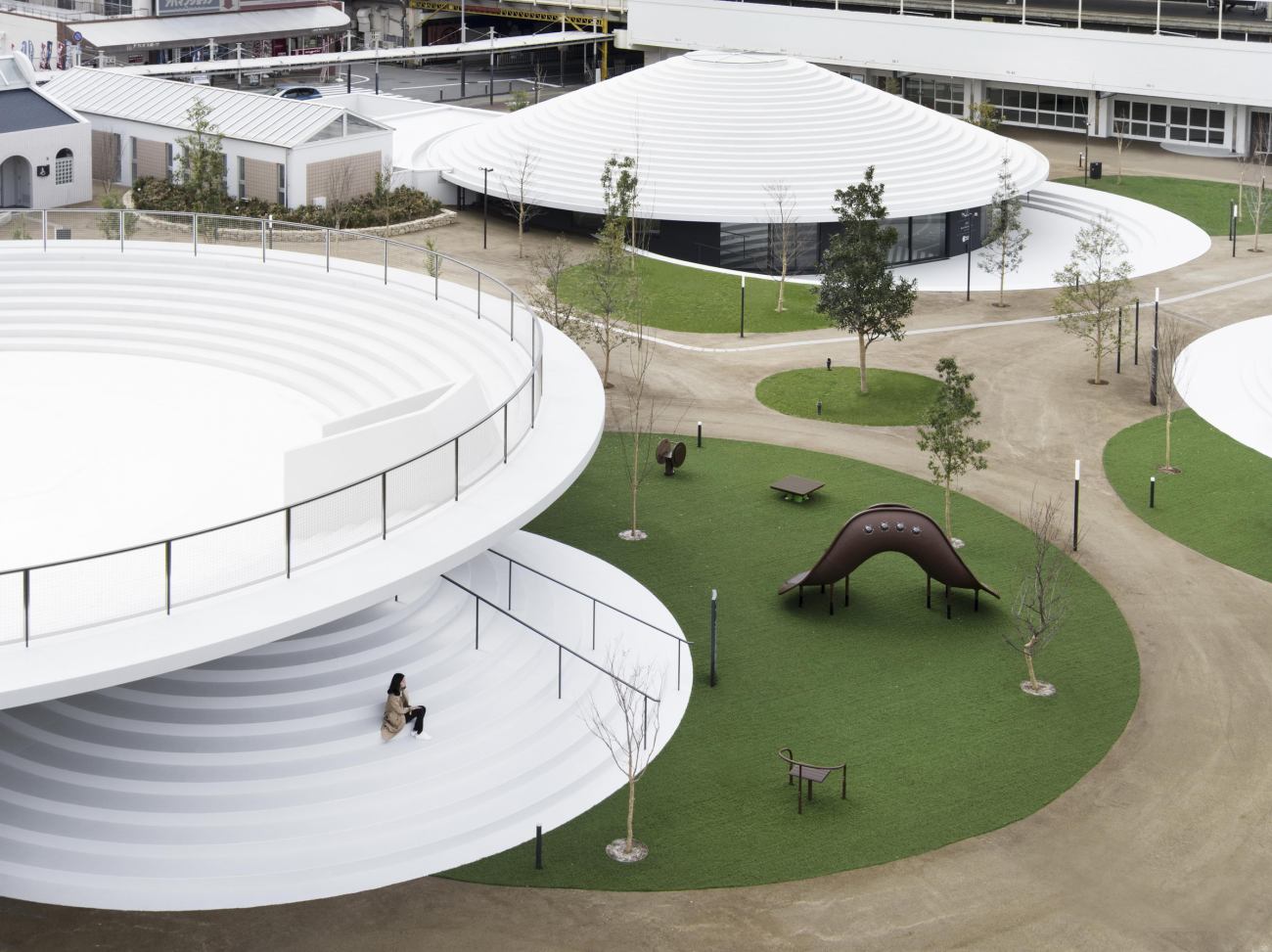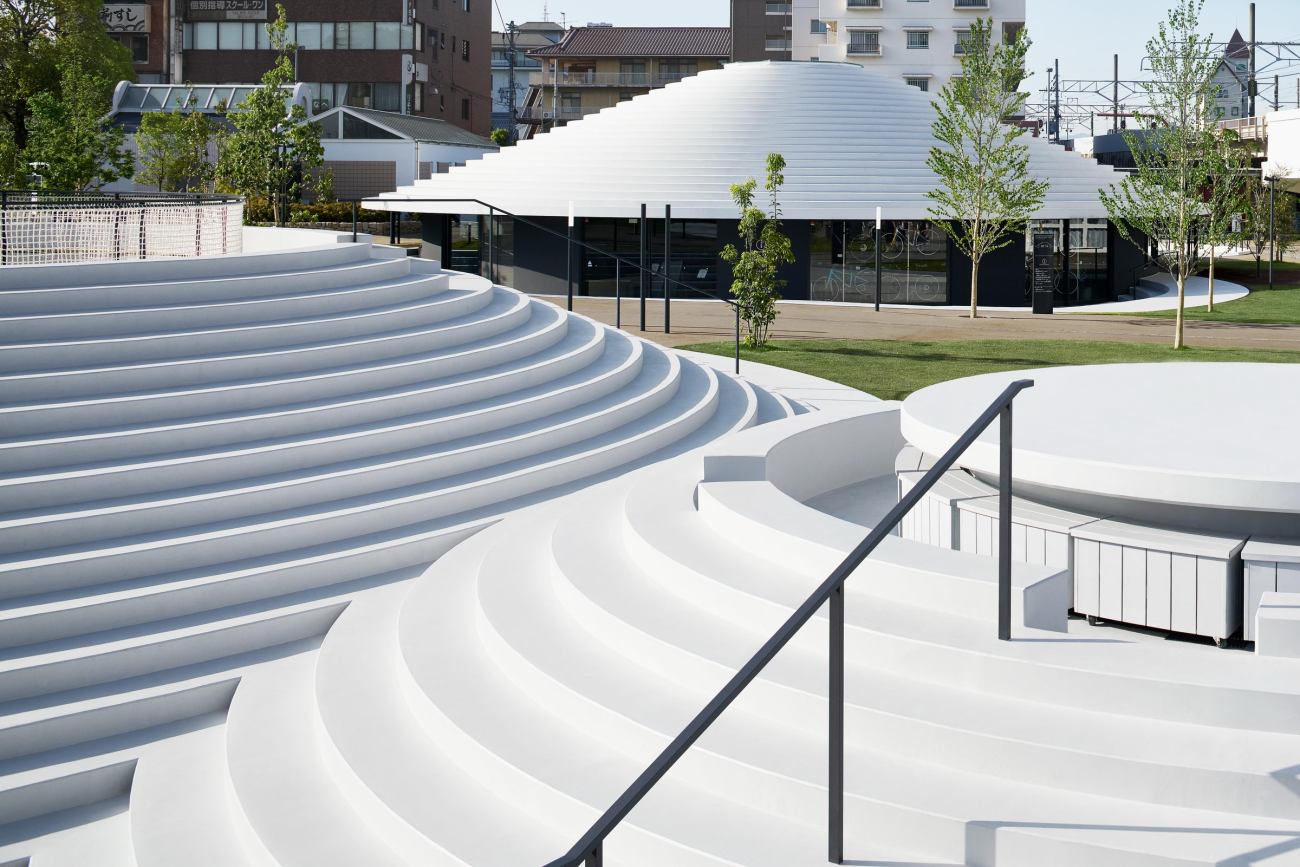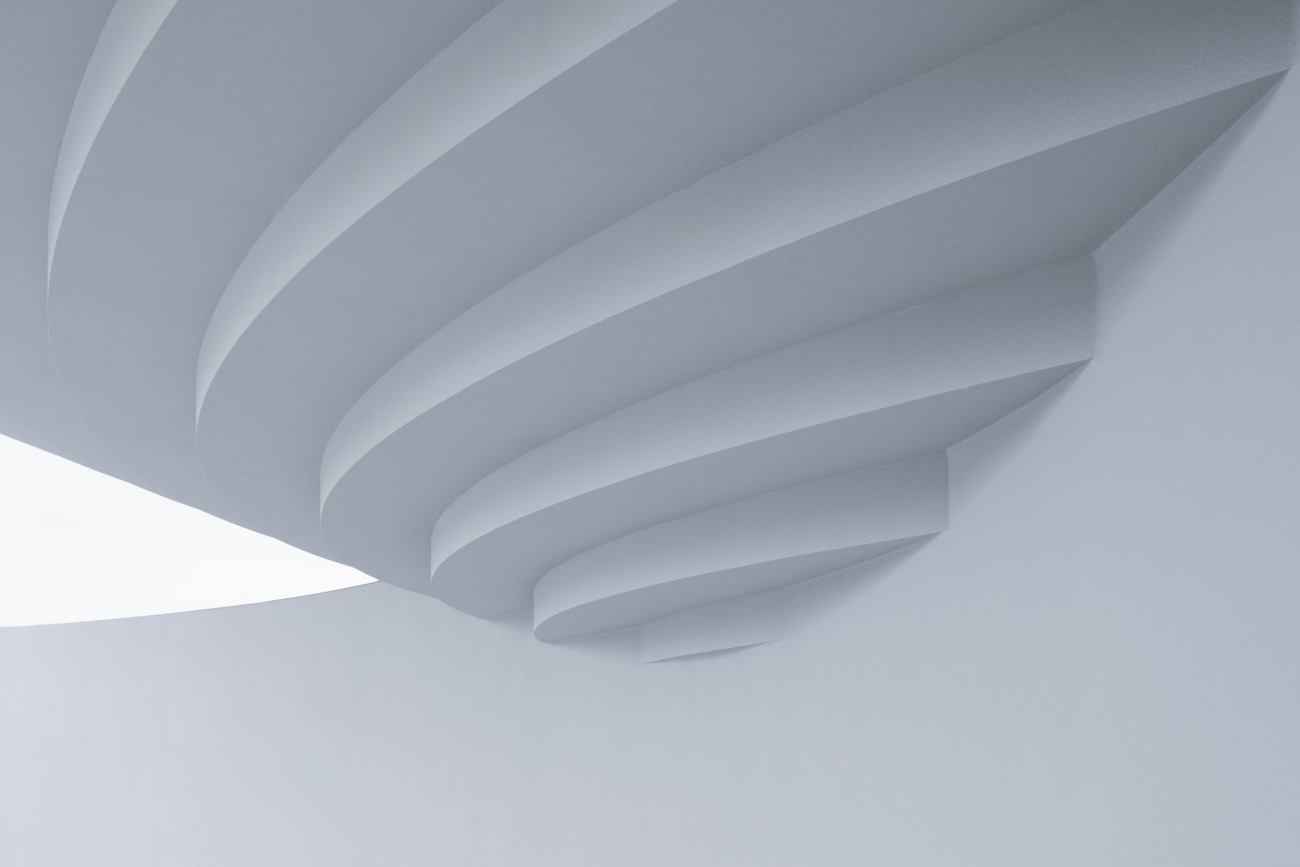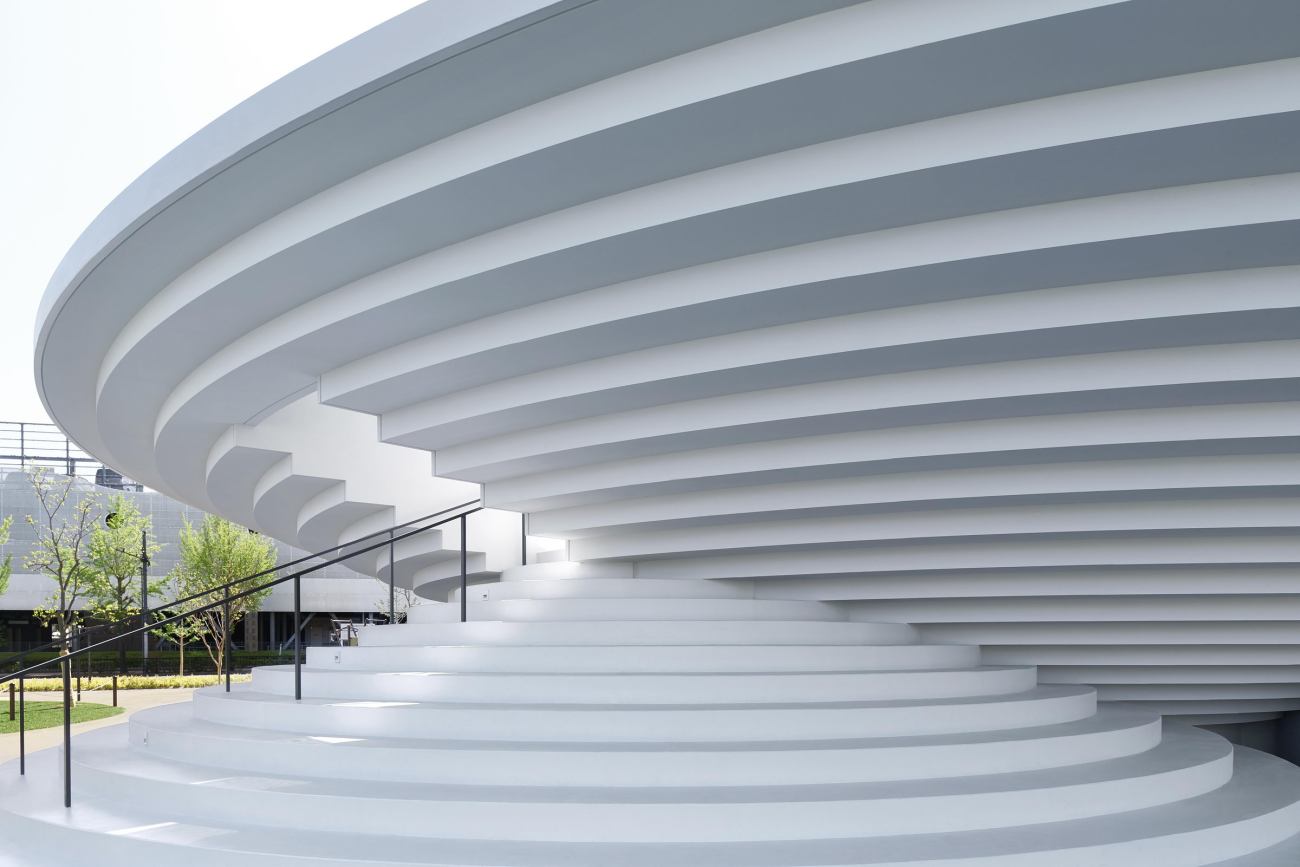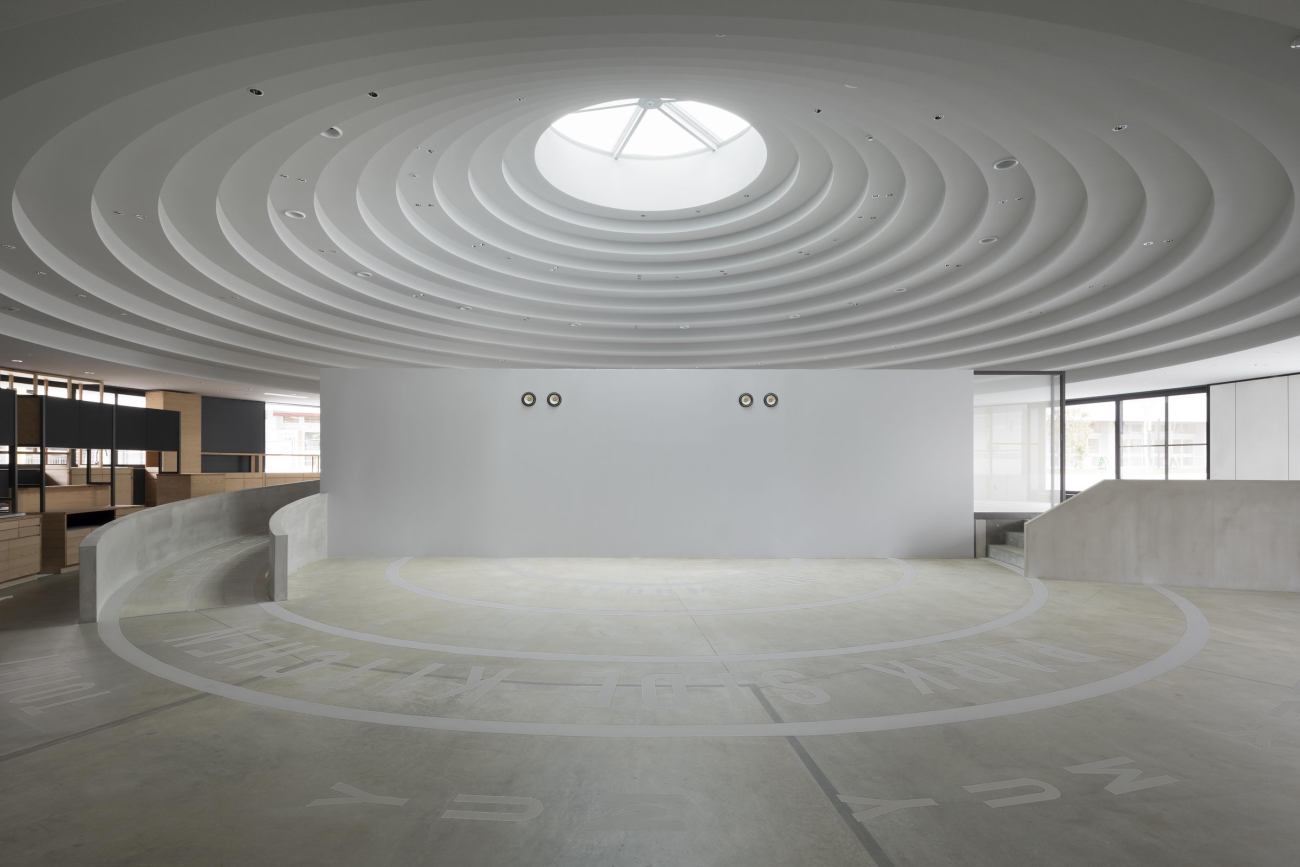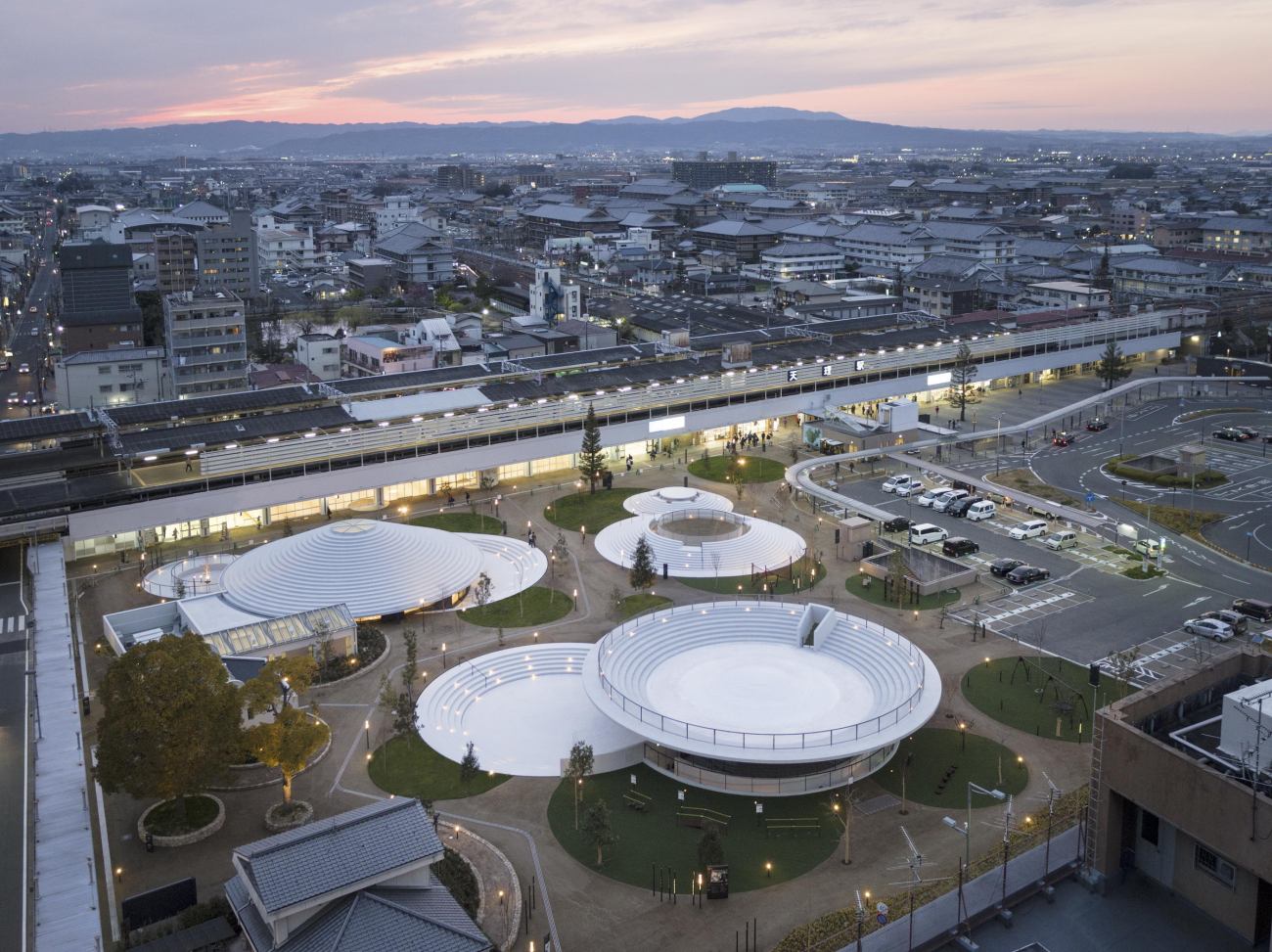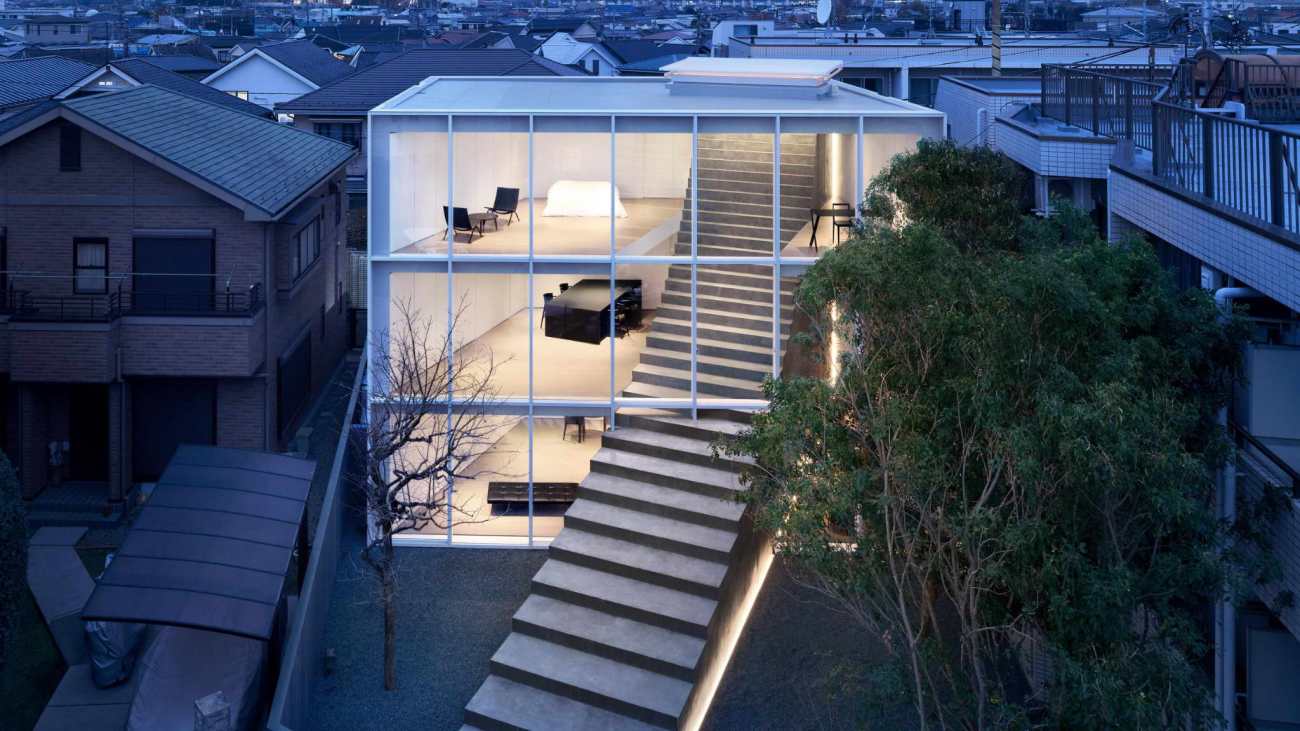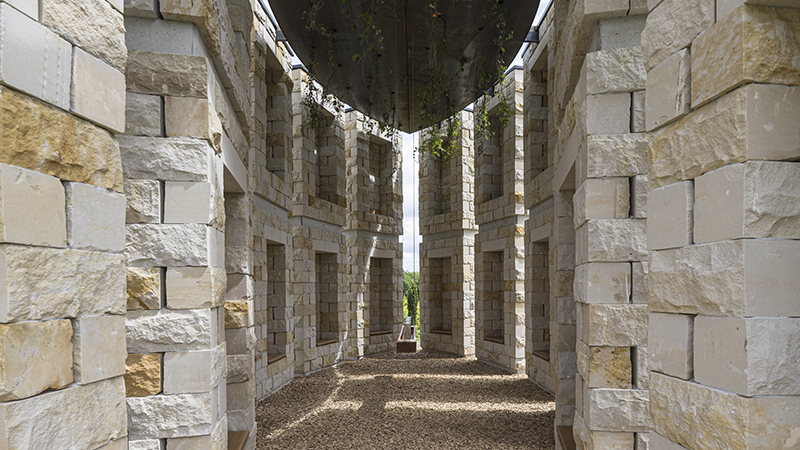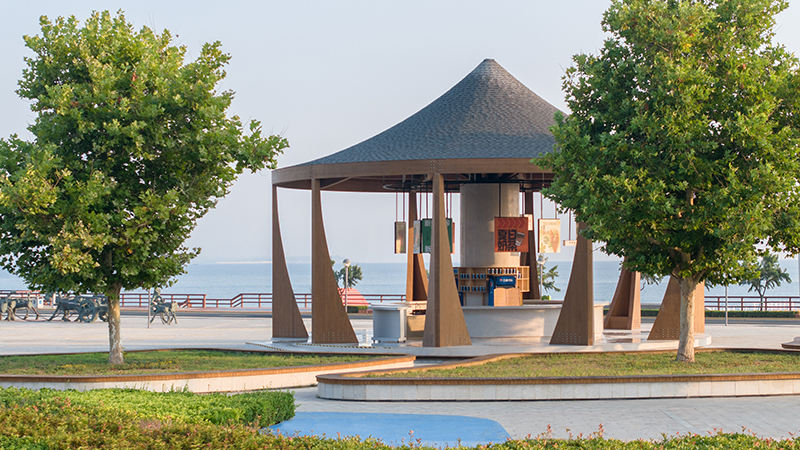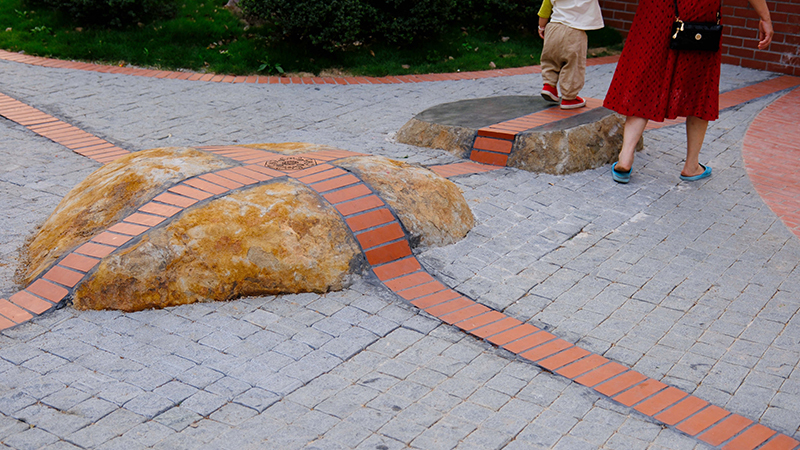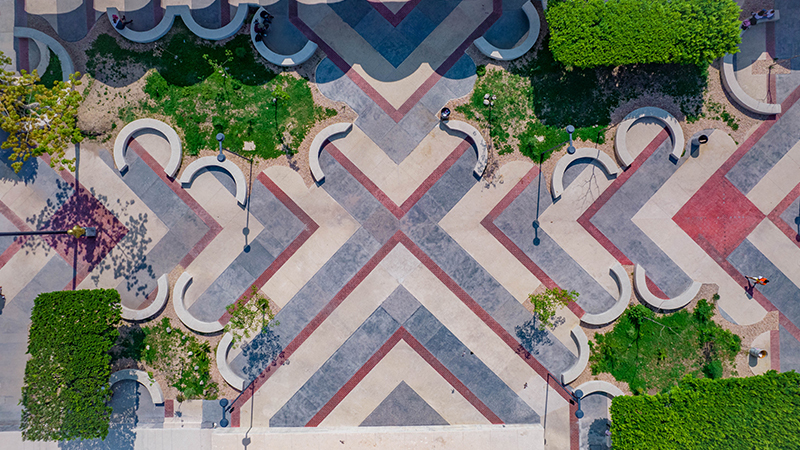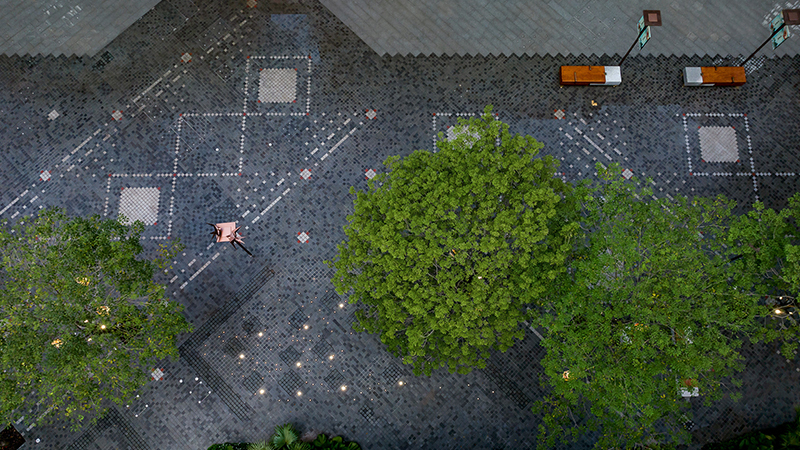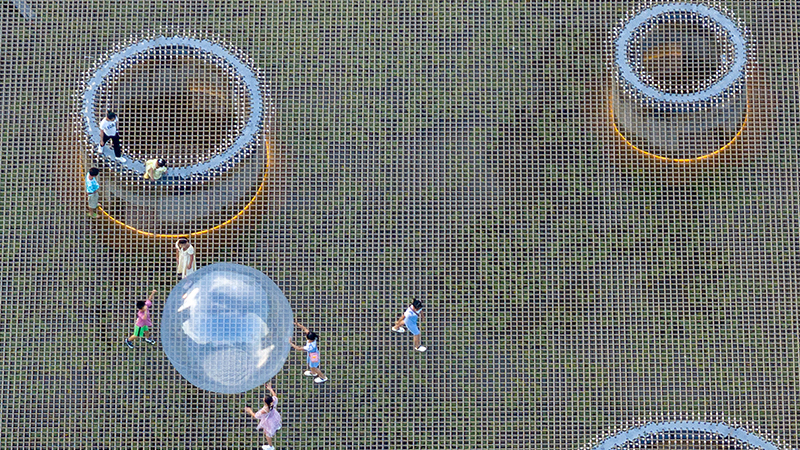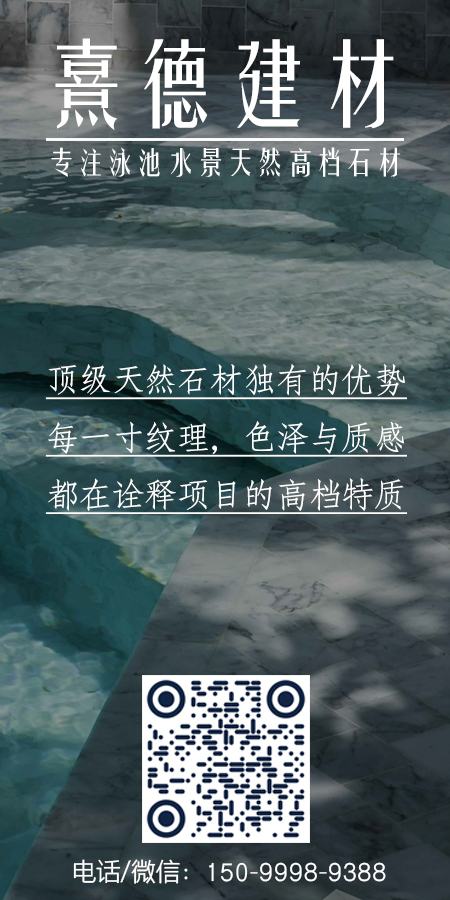项目是位于日本西南部地区的奈良县天理站的车站广场的总体规划。项目面积为7700平方米,包括自行车租赁、咖啡馆和其他商店、信息亭、游乐区、户外舞台和会议区。项目的目标是通过为当地居民提供活动空间、旅游信息传播和休闲设施来鼓励当地社区的振兴。
The master plan for the station plaza at Tenri Station in Nara prefecture, located in the southwest region of Japan. The plan for the 7,700 square meter area includes bicycle rentals, a cafe and other shops, an information kiosk, a play area, outdoor stage, and meeting area. The project goal was to encourage local community revitalisation by providing a space for events, tourist information dissemination and leisure facilities for local residents.
天理市的城市边界包括一些日本古墓,被称为 "cofun"。古墓是美丽的、无法辨认的,但却融入了城市的日常生活空间。广场的景观被几个这样的"cofun"丰富地点缀着,代表了该地区的地理特征:奈良盆地,四面环山。
Tenri’s urban boundaries include a number of ancient Japanese tombs, known as “cofun”. The cofun are beautiful and unmistakeable, but blend into the spaces of everyday life in the city. The plaza’s landscape, richly punctuated by several of these cofun, is a representation of the area’s characteristic geography: the Nara Basin, surrounded on all sides by mountains.
创造广场上的圆形“cofun”结构所使用的建筑技术包括将一块块预制混凝土模具拼接在一起,就像一个巨大的比萨饼。由于预制混凝土模具在工厂成型,然后在现场组装,所产生的结构是精确的,同一模具可以多次使用,确保了良好的成本效益。预制件像积木一样用建造桥梁的大型吊车拼接起来。大的空间可以在不使用柱子或梁的情况下形成,由于是圆形,平衡良好的结构提供了对来自任何方向的力量的稳定性。
The construction technique used to create the plaza’s round cofun structures consisted of fitting together pieces of a precast concrete mould resembling a huge pizza. Because precast concrete moulds are formed at the factory and then assembled onsite, the resulting structures are precise and the same mould can be used multiple times, ensuring excellent cost-performance. The pre-formed parts are pieced together like building blocks using the same massive cranes used to build bridges. Large spaces can be formed without the use of columns or beams, and because of the round shape the well-balanced structures offer stability against forces applied from any direction.
“cofun”的不同层次有多种用途:它们是楼梯,但也是供人坐的长椅,围住玩耍的儿童的栅栏,咖啡馆和舞台的屋顶,展示产品的架子,以及夜间的照明效果,使广场充满了光。这种多样性创造了一个环境,鼓励游客在广场内的不同空间进行探索和停留,而不是将他们的活动限制在一个地方。这是一个 "模棱两可"的空间,完全是一个咖啡馆、一个游乐场,同时又是一个巨大的家具。
The cofun’s different levels serve a variety of purposes: they’re stairs, but also benches for sitting, fences to enclose playing children, the cafe and stage roofs, shelves for displaying products and the nighttime lighting effect, which floods the plaza with light. This variety creates an environment that encourages visitors to explore and spend time in different spaces within the plaza, rather than limiting their movement to one place. It’s a “ambiguous” space that’s entirely a cafe, a playground and a massive piece of furniture, all at once.
导柱和标志牌具有与cofun相似的柔和曲线,并被染成深灰色,形成一种自然的对比,同时还能很好地与周围的区域相适应。它们还根据其功能被安排在四个不同的高度,以尽量减少噪音水平。会议区增加了一个儿童游戏空间,一个用于阅读书籍的休息室和学习空间,以及一个可用于音乐会或公开放映的舞台,天理纪念品可以在空间旁边新设计的商店购买。
Guideposts and signboards feature gentle curves similar to those of the cofun, and are coloured a dark grey that creates a natural contrast while still fitting in with the surrounding area well. They are also arranged at four different heights according to their function in order to minimize noise levels. A play space for children, a lounge and study space for reading books, and a stage that can be used for concerts or public screenings have all been added to the meeting area, and Tenri souvenirs can be purchased at a newly designed shop next to the space.
每一个设计都是为了确保室内的材料和色彩与广场上的材料和色彩尽可能地匹配。使用奈良县的木材制作的家具和装置,围绕着cofun主题设计,创造了一种与广场统一的感觉。
Every design was given to ensure that the materials and colouring of the interiors matched those of the plaza as closely as possible. Furniture and fixtures made using wood from Nara Prefecture and designed around a cofun theme create a sense of uniformity with the plaza.
广场的名字,CoFuFun,结合了主要的设计主题,cofun,和日本的口语表达。"Fufun "指的是快乐的、无意识的哼唱:广场的设计应该提供一种欢快的氛围,使游客在那里时无意识地哼唱,快乐地享受。
The plaza’s name, CoFuFun, combines the main design motif, the cofun, with colloquial Japanese expressions. “Fufun” refers to happy, unconscious humming: the design for the plaza should offer a convivial atmosphere that unconsciously leads visitors to hum, happily, while they’re there.
字母拼写 "CoFuFun "也带来了 "合作 "和 "社区 "的 "co",以及当然还有--"乐趣"本身。其结果是,这个名字的日语和字母拼写含义相似,因此,来到广场的外国游客也会以同样的方式理解它。
The alphabet spelling, “CoFuFun”, also brings in the “co-” of “cooperation” and “community”, as well as – of course – “fun” itself. The result is a name whose Japanese and alphabet spellings mean similar things, so that foreign visitors to the plaza will understand it in the same way, too.
▼项目视频 Video
Project: Tenri Station Plaza CoFuFun
Architects: nendo
Area: 6000 m²
Lighting Design: Izumi Okayasu Lighting Design
Planting: studio mons LLC.
Year: 2017
Photographs: Takumi Ota, Daichi Ano, Tadashi Endo
更新日期:2021-05-14 12:23:49
非常感谢 nendo 带来的精彩项目, 查阅更多Appreciations towards nendo for sharing wonderful work on hhlloo. Click to see more works!


